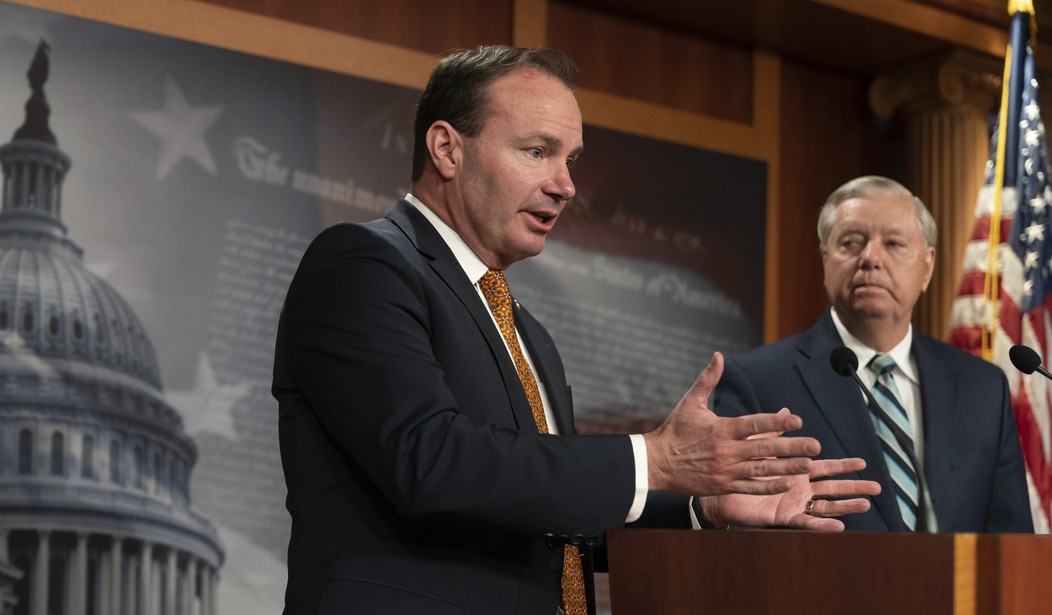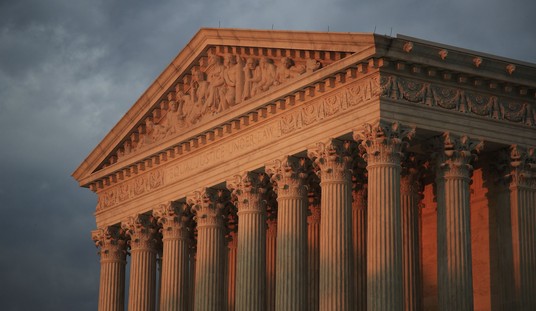Should parts of Yellowstone National Park -- or any national park or monument -- be sold so private homes can be built there?
Absolutely not.
But what about a very small fraction of the approximately 437 million acres of land controlled by the Bureau of Land Management and the Forest Service that is not part of any national park or monument?
In May 1862, President Abraham Lincoln signed the Homestead Act, which allowed individuals and families to claim 160 acres of federally owned land in the American West if they lived on it and worked it for five years. In December 1863, he reflected on its success.
"It has long been a cherished opinion of some of our wisest statesmen that the people of the United States had a higher and more enduring interest in the early settlement and substantial cultivation of the public lands than in the amount of direct revenue to be derived from the sale of them," said Lincoln.
"This policy has received its most signal and beneficent illustration in the recent enactment granting homesteads to actual settlers," he said. "Since the first day of January last the before-mentioned quantity of 1,456,514 acres of land have been taken up under its provisions."
In 1961, the Library of Congress prepared a report on the Homestead Act's history. It noted that by 1960 there had been 1,466,033 homestead claims totaling 248,015,473 acres.
"Who can say that the homesteader of free land who broke the prairie sod, cleared the timber, and who converted the desert wastes into productive farms whereupon to build his home and rear his family has not been a vital factor in developing the backbone of American citizenry and civilization," said this report.
Recommended
In 1962, President John F. Kennedy applauded the impact of the Homestead Act, which was still in effect.
"One hundred years ago the Congress passed the Homestead Act, probably the single greatest stimulus to national development ever enacted," Kennedy said in a message to Congress. "Under the impetus of the Act and other laws, more than 1.1 billion acres of the original public main have been transferred to private and non-federal public ownership."
In 1976, however, a Democrat-controlled Congress passed the Federal Land Policy and Management Act, which repealed the Homestead Act. Republican President Gerald Ford signed it into law.
Today, much of the land in the American West is still owned by the federal government.
According to a Congressional Research Service report published in 2020, the federal government as of 2018 owned 80.1% of Nevada, 63.1% of Utah, 61.9% of Idaho, 60.9% of Alaska, 52.3% of Oregon, 46.7% of Wyoming, 38.6% of Arizona, and 36.2% of Colorado.
It even owned 45.4% of California.
By contrast, the federal government owned only 0.3% of Connecticut, 0.7% of Rhode Island, 0.8% of New York, 1.2% of Massachusetts, and 1.5% of Maine.
President Ronald Reagan made remarks in 1987 that, like Kennedy's in 1962, noted the positive impact of the Homestead Act. "Abraham Lincoln signed into law the Homestead Act that ensured that the great western prairies of America would be the realm of independent, property-owning citizens -- a mightier guarantee of freedom is difficult to imagine," Reagan said.
Interior Secretary Doug Burgum and Housing and Urban Development Secretary Scott Turner followed in the spirit of the Homestead Act this March when they "announced a Joint Task Force on using underutilized federal land suitable for housing to increase supply and decrease costs for millions of Americans."
"America needs more affordable housing, and the federal government can make it happen by making federal land available to build affordable housing stock," they wrote in a Wall Street Journal op-ed.
Sen. Mike Lee (R-Utah), who chairs the Senate Energy and Natural Resources Committee, followed up on this by proposing language for the Senate version of the One Big Beautiful Bill Act. His committee's summary of this proposal says it: "Directs BLM to dispose of 0.5-0.75% of certain BLM land and the Forest Service to dispose of 0.5-0.75% of certain National Forest System Land to address the housing crisis."
These lands, the proposal states, "shall be used solely for the development of housing or to address associated community needs."
It also states that "federally protected land" -- which includes, for example, national parks, national monuments, national recreation areas, national wildlife refuges, national battlefields and national historical parks -- may not be included in the lands that are sold.
"We are opening underused federal land to expand housing, support local development, and get Washington, D.C. out of the way of communities that are just trying to grow," Lee said in a video message on the proposal.
Not surprisingly, some politicians oppose it. Rep. Joe Neguse (D-Colo.) and Sen. Michael Bennet (D-Colo.) put out a joint statement calling it "an affront to our core values."
"We must continue to stand in firm opposition to any provisions that would put a for sale sign on our nation's treasured public lands," they said.
Where would Lincoln -- signer of the Homestead Act -- stand? Would he stand with politicians who don't want the government to cede even a sliver of its massive land holdings, or with those willing to let a small part of that land become the space for the privately owned homes of private citizens?
























Join the conversation as a VIP Member